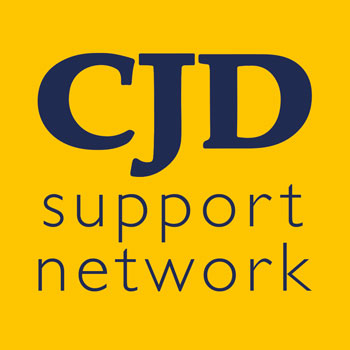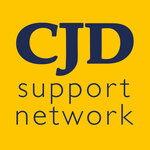The following story is written by Jill’s daughter, Charlotte.
There’s an age-old saying that tomorrow is never promised.
You see, you expect things to stay constant forever, and you expect the people you love to be just as constant. You never imagine a world where they are no longer here. Unfortunately for me and my family, that nightmare became a reality in 2019 when my amazing Mother, Jill, passed away from sporadic CJD
I am one of four children, who grew up in a family home surrounded by love (though my siblings will tell you–there were cross words from time to time between us!). We had a mum and dad who were always there for us, throughout our very blessed childhood and right into adulthood, with us all now having families of our own. We were the picture-perfect family and had a big emphasis on family events. People wondered how such a large family managed Christmas, but we did, albeit very chaotically! Christmas is still just as chaotic now, but there’s an important person missing from the dinner table.
It all started for us around February 2019. Mum had become forgetful, something of great concern. She would forget simple things such as the day of the week, or how to put the television on. At around the same time, she started to lose her balance and became unsteady on her feet. With my dad becoming more and more concerned that something wasn’t right, the doctor diagnosed mum with vertigo. We were hopeful that things would soon improve. Our hope was very short-lived, with no noticeable progress. In fact, the opposite happened. Mum was becoming more forgetful and losing her balance more. Upon another doctor’s visit, she was referred for an MRI. Having not heard anything, on 17th April, dad took mum to the doctor again and she was admitted to the hospital.
We had no idea on that day how much things would change.
In the hospital, they performed an MRI and a Lumbar puncture to determine what was going on. The original diagnosis was Encephalitis, an uncommon and serious, but treatable, condition in which the brain becomes inflamed. Though a frightening diagnosis, we were again hopeful. That hope was also to be short-lived. Mum was put on IV antibiotics, but no improvement could be seen. Again, the opposite happened. There was great deterioration in mum’s condition and no one understood why. Mum was transferred to a larger hospital, and the reality of the nightmare started to unfold.
Dad was called to the hospital for a meeting on May 1st, 2019. It was a weekday, so off to work I went. It was far from a normal day as I was sitting at my desk with concern, but again feeling hopeful that dad would have a positive meeting with the hospital. Dad was always the hardworking family man, doing everything he could to provide for us no matter what. I knew he would never call us out of work unless the situation was serious. And so, when I received the message from him “You all need to come to my house, now!”, my heart sank.
I don’t remember leaving work, I don’t remember driving to my dad’s house. I just remember a black cloud over me and wanting to break the speed limit just so I could get there. My siblings and I walked in together and the look on dad’s face said it all–the nightmare had become a reality: “Your mum has CJD–it’s fatal.”Confused and wondering ‘What even is CJD? What’s going to happen now?’ we discovered that it is a rapidly progressing brain disease that affects two in a million people. I was in disbelief–‘this can’t be right, can it? Things like this don’t happen to my mum!’ Before we had time to digest the information, we were told that a doctor and a nurse from the NCJDRSU in Edinburgh were coming down to speak with us as a family.
The doctor and nurse from Edinburgh were nothing short of fantastic.
They told us we could take mum home, or find a care home and that all the care would be sorted by them. We discussed our options as a family and decided it was best to find a care home suitable for mum. Mum was moved into a care home and the Edinburgh team was in close contact, advising the staff on what to expect from the disease and what the best course of care would be.
Between the professionals from Edinburgh and the nurses caring for mum, she was made to feel very comfortable and as a family, we could not be more thankful for this. Watching the person who gave me life losing hers, alongside my dad and siblings, over the following weeks is by far the most harrowing experience I have faced–it will stay with me forever. I felt helpless, I just wanted my mum. Talking with her whilst she was still able to, she would mention Christmas. I talked happily of it but knew she wouldn’t be here to see it. In the last week, mum was unable to talk, eat or drink. The day before she passed, a nurse told us ‘It’s imminent’ We all sat with mum through the night, and on June 19th, 2019 she took her last breath.
On many occasions, I’ve been asked what it was like toward the end.
When you try and explain the confusion, all too often people will comment such things as “it sounds like dementia” or “it sounds like MND.”Even when I try to explain what CJD is, this is often met with“Oh yes I know, mad cows’ disease.”People mean well and many have supported us during mum’s illness and after her passing. However, as many of you reading this will know all too well, unless you have lost a loved one to CJD, you cannot know the true impact it can have and what unfolds in those last few weeks.
Throughout the nightmare that started for my family in 2019, we are so glad we had–and still have-the CJD Network and their support.
The Facebook group has been a great source of information and it’s been a comfort to share experiences with others.
I have yet to attend one of the family days, but my dad has attended two and found them to give a great sense of support and comfort. I encourage anyone to support the network and fundraise as much as possible. They are such a small charity, but for families like ours and many families affected by CJD, they have been a lifeline. I would like to close by thanking everyone at the CJD Network.
Tomorrow is never promised.
Tell your loved ones how much they mean to you. Hug them, tell them you love them, and make memories.
The CJD Support Network would like to thank Charlotte for sharing her mother’s story. If you would like to share your experiences in our newsletter, please do get in touch. If you would benefit from further support, we are here for you [email protected] and on: 0800 774 7317.


